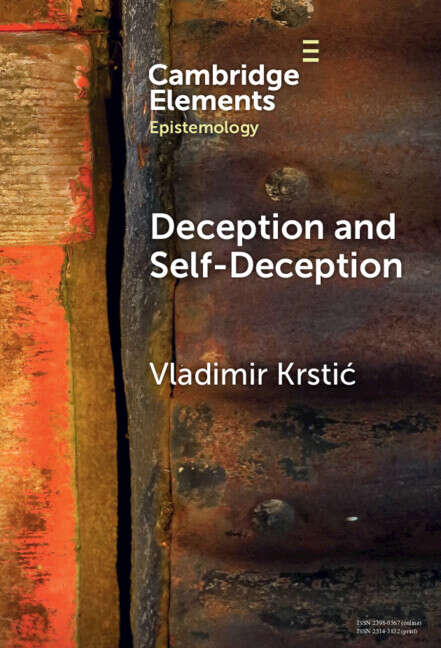Deception and Self-Deception: A Unified Account (Elements in Epistemology)
By:
Sign Up Now!
Already a Member? Log In
You must be logged into Bookshare to access this title.
Learn about membership options,
or view our freely available titles.
- Synopsis
- Received theories of self-deception are problematic. The traditional view, according to which self-deceivers intend to deceive themselves, generates paradoxes: you cannot deceive yourself intentionally because you know your own plans and intentions. Non-traditional views argue that self-deceivers act intentionally but deceive themselves unintentionally or that self-deception is not intentional at all. The non-traditional approaches do not generate paradoxes, but they entail that people can deceive themselves by accident or by mistake, which is controversial. The author argues that a functional analysis of deception solves these problems. On the functional view, a certain thing is deceptive if and only if its function is to mislead; hence, while (self-)deception may but need not be intended, it is never accidental or a mistake. Also, self-deceivers need not benefit from deception and they need not end up with epistemically unjustified beliefs; rather, they must 'not be themselves'. Finally, self-deception need not be adaptive.
- Copyright:
- 2025
Book Details
- Book Quality:
- Publisher Quality
- ISBN-13:
- 9781009362900
- Related ISBNs:
- 9781009509770, 9781009509770
- Publisher:
- Cambridge University Press
- Date of Addition:
- 09/04/25
- Copyrighted By:
- Vladimir Krstić
- Adult content:
- No
- Language:
- English
- Has Image Descriptions:
- No
- Categories:
- Nonfiction, Philosophy
- Submitted By:
- Bookshare Staff
- Usage Restrictions:
- This is a copyrighted book.
